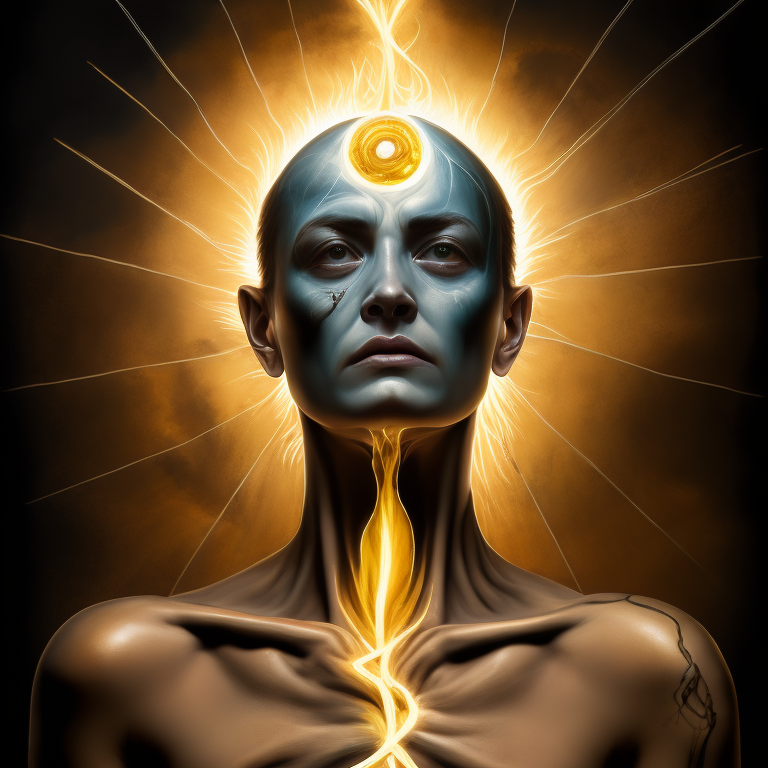From the everyday frustrations to the most profound heartaches, pain is often regarded as an unwanted intrusion in our lives, something to be avoided at all costs. However, understanding its nature is crucial to our ability to cope with and transcend this integral part of the universal human experience. Yet pain is different from suffering. While suffering is rooted in attachment, pain is unavoidable or at least, necessary to keep your heart open. Let’s look into that a bit more closely…
Khalil Gibran, the renowned Lebanese-American poet and philosopher, had a profound understanding of the human experience, including the nature of suffering. His poetic insights provide a unique perspective on suffering as a pathway to growth and transcendence. In his book, the Prophet, he describes suffering:
Your joy is your sorrow unmasked. And the selfsame well from which your laughter rises was oftentimes filled with your tears. And how else can it be? The deeper that sorrow carves into your being, the more joy you can contain.
When you are joyous, look deep into your heart and you shall find it is only that which has given you sorrow that is giving you joy.
When you are sorrowful look again in your heart, and you shall see that in truth you are weeping for that which has been your delight.
Together they come, and when one sits alone with you at your board, remember that the other is asleep upon your bed.

As I go through life experiences, I realize that the more I welcome pain the more at peace I am. The key is to disengage. Sit quietly and observe. When your psyche is anxious. I sit and stop looking for solutions. I sit with my discomfort and observe it like a kid, curious at where it is felt, which body organ it is affecting and how it is influencing my chain of thoughts.
We are wired to keep pain at bay but in doing so we learn to keep our hearts closed, which ends up draining our energy well. Instead, be willing to experience the disturbances.
Sitting with discomfort has enlightened me. It helped me bring light to my sorrows and look at them with a torch, helping to disentangle them.
When looked at them more closely, negative emotions, like Jealousy, Anger, Pain, Humiliation, Frustration… are all the absence of Love. They vibrate at lower wavelengths and keep us entangled in a chain of reactions.
When unaddressed, these emotions keep us in a system of defense against “others”. They make us resentful of others, as we try to blame or accuse others, outside of ourselves, for our feelings and state of misery.
However, when we sit with these emotions, accept them and fully experience the suffering without engaging in a system of defense against others, we are faced with an existential question of the value of our lives.
When explored more deeply, suffering reminds us we are limited as humans and we crave infinite love. When we choose to suffer, we are reminded we are only human, and we feel strong compassion for the humans around us.
Experiencing hardships is but a way to connect to others going through life. It awakes our soul to the depth of our human experience and we feel a deep connection to others on the same walk of life. Hence, instead of engaging in a defense mechanism that ends up leaving us astray, accepting negative emotions brings us closer to our human nature. Aside from connecting us to others, accepting our limitedness frees us from suffering. Instead of resisting it and expressing it outwards, we become capable of dissolving it.
Suffering is but a wake up call to our soul, one reminding us of the impermanence of life. Within the depths of suffering lie profound lessons waiting to be discovered. While it may be difficult to fathom when we are in the midst of pain, suffering has the potential to foster personal growth and transformation. Suffering can also instill empathy and compassion, as we gain a deeper understanding of the struggles faced by others. By embracing the lessons hidden within suffering, we can find purpose and meaning in our own journeys.
Transcending suffering does not mean eradicating pain or denying its existence. Instead, it involves accepting suffering as an inevitable part of the human experience and using it as a catalyst for growth. By reframing our perspective, we can transform suffering into a stepping stone towards resilience and personal development.
As we journey through the ups and downs of life, let us find solace in the knowledge that suffering, ultimately, can lead us to a deeper understanding of ourselves and the world around.



